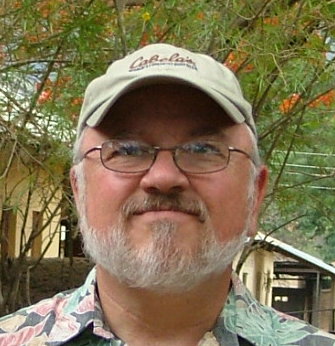Sorry we'll have to miss it.
We're off on an important
Mission in the islands.
Back soon.
Maybe!!!
In Baltimore... In Community... In Christ
 Lord, may your kingdom come and your will be done, here in Baltimore... I graduated from seminary more than 3o years ago, and moved with my wife and 7 month old son to Baltimore to become the pastor of a small congregation in the Roland Park area. I jogged into Baltimore as a young idealistic pastor with big plans for engaging the city. Two years later I limped out of Baltimore as a weary young pastor who had trained to run a 100 yard dash, and didn't have the right stuff to run the Baltimore marathon. In spite of my inability to complete the marathon, I've always loved this city and wasn't really surprised when I sensed the call of God to return 30 years later. After all, I had never completed the race. About a year ago, while we were still living in Africa, I printed this satellite view of the Canton community from Google Earth and began praying for the area. My boat is now in slip A-42 which is along the bottom right edge of the ceramic cross sitting on the picture. I invite you to breathe a simple prayer as you jog along the promenade or drive through the streets or cruise the harbor... Lord, may your kingdom come and your will be done here in Baltimore. -- Bob
Lord, may your kingdom come and your will be done, here in Baltimore... I graduated from seminary more than 3o years ago, and moved with my wife and 7 month old son to Baltimore to become the pastor of a small congregation in the Roland Park area. I jogged into Baltimore as a young idealistic pastor with big plans for engaging the city. Two years later I limped out of Baltimore as a weary young pastor who had trained to run a 100 yard dash, and didn't have the right stuff to run the Baltimore marathon. In spite of my inability to complete the marathon, I've always loved this city and wasn't really surprised when I sensed the call of God to return 30 years later. After all, I had never completed the race. About a year ago, while we were still living in Africa, I printed this satellite view of the Canton community from Google Earth and began praying for the area. My boat is now in slip A-42 which is along the bottom right edge of the ceramic cross sitting on the picture. I invite you to breathe a simple prayer as you jog along the promenade or drive through the streets or cruise the harbor... Lord, may your kingdom come and your will be done here in Baltimore. -- Bob
And I simply come
Longing just to bring
something that's of worth
That will bless Your heart
I'll bring You more than a song
For a song in itself
Is not what You have required
You search much deeper within
Through the way things appear
You're looking into my heart
I'm coming back to the heart of worship
And it's all about You All about You, Jesus
I'm sorry, Lord, for the things I've made it
When it's all about You
All about You, Jesus
 Woven together in Christ... In his book, Waking the Dead: The Glory of a Heart Full Alive, John Eldredge includes a chapter on the importance of authentic, intimate community. Here is an excerpt from chapter 11 which he entitles Fellowships of the Heart. I've also created a link to chapter 11 in its entirety. Enjoy! -- Bob
Woven together in Christ... In his book, Waking the Dead: The Glory of a Heart Full Alive, John Eldredge includes a chapter on the importance of authentic, intimate community. Here is an excerpt from chapter 11 which he entitles Fellowships of the Heart. I've also created a link to chapter 11 in its entirety. Enjoy! -- Bob

 Where do Super Bowl losers’ hats/shirts go?
Where do Super Bowl losers’ hats/shirts go? Meet a Man of Peace
Meet a Man of Peace What's Happening
What's Happening